Every company that wants to thrive in today’s digital environment has to have a strong online presence. With the increasing popularity of online shopping and digital services, it’s important to know how to market your business online effectively. In this Blog, we will discuss digital marketing strategies that can help you boost your online presence and reach more customers.Table of Contents
Introduction
Digital marketing is a broad term encompassing all marketing efforts using electronic devices and the internet. Different sectors have a strong online presence contributing to today’s digital world. The good news is that many digital marketing strategies can help you boost your online presence and reach more customers. This blog will discuss some of the most effective digital marketing strategies to help you take your business to the next level.
Understanding Digital Marketing
Digital marketing promotes products or services using digital technologies, mainly online. The goal of digital marketing is to reach a larger audience, engage with potential customers, and ultimately drive sales or conversions. In today’s digital age, having a strong online presence is crucial for any business looking to compete in the marketplace.
Why Digital Marketing is Important
Digital marketing is important for businesses of all sizes because it offers several benefits that traditional marketing methods can’t match. These are the foundation reasons for the importance of digital marketing:
TALK TO US AND GET YOUR PROJECT MOVING!
Get a Free Consultation with our expert and let us know your project idea to turn it into an amazing digital product.
1. Increase the area audience
With digital marketing, you can spread your content to a much larger audience than traditional marketing methods. By taking advantage of digital channels like social media (Facebook, Twitter, Instagram, Pinterest), search engines optimization, and email marketing (mailchimp, Sender, hubspot), you can connect with people from all over the world.
2. Target specific demographics
You may target certain demographics, interests, and behaviors with digital marketing. This means you can create personalized messages that speak directly to your target audience and increase the chances of conversion.
3. Cost-effective
In general, digital marketing is less expensive than traditional marketing strategies. Pay-per-click (PPC) advertising, for example, allows you to set a budget and only pay when someone clicks on your ad. This means you’re not wasting money on people uninterested in your product or service.
4. Measure your results
With digital marketing, you can track your results in real-time and adjust as needed. This means you can see what’s working and what’s not and optimise your campaigns for better results.
5. Build relationships with customers
Digital marketing allows you to build customer relationships by engaging with them on social media, sending personalised emails, and creating valuable content. Building trust and establishing yourself as an authority in your industry can increase brand loyalty and drive more sales or conversions.
Utilising Search Engine Optimization (SEO)
SEO (Search Engine Optimisation) is a critical component of digital marketing. Optimising your website for search engines can increase your online visibility and attract more traffic. Here are some SEO suggestions:
![]()
1. Conduct keyword research
Keyword research identifies the keywords and phrases people use to search for products or services like yours. By conducting keyword research, you can create content targeting these keywords and improve your chances of ranking higher in search engine results pages (SERPs).
2. Optimise your website
Optimising your website involves making changes to your website’s structure, content, and HTML code to improve its relevance and usability for both users and search engines. This includes optimising your website’s meta tags, URLs, images, and internal linking structure.
3. Create quality content
Creating quality content is essential for SEO. Creating valuable, informative, and engaging content can attract more traffic to your site and increase the chances of getting backlinks from other sites.
4. Build backlinks
Backlinks are hyperlinks from other websites to your site. By building high-quality backlinks, you can improve your website’s authority and increase its chances of ranking higher in SERPs.
5. Monitor your results
Monitoring your results is important for SEO because it allows you to track your progress and adjust as needed. Using tools like Google Analytics, you can track your website’s traffic, engagement, and conversions and identify improvement areas.
Pay-Per-Click (PPC) Advertising
Pay-per-click (PPC) advertising is a popular digital marketing strategy involving ads placed on search engine results pages (SERPs) and other websites. PPC ads are displayed to users searching for keywords relevant to your business, and you only pay when a user clicks on your ad.
![]()
Here are some pointers for developing successful PPC campaigns:
1. Conduct thorough keyword research
Keyword research is essential for developing successful PPC advertisements. You need to identify the keywords your target audience is searching for and ensure that your ads target those keywords. To locate appropriate terms and estimate their search volume, use tools like Google Keyword Planner and SEMrush.
2. Write compelling ad copy
Your advertisement wording should be interesting, useful, and relevant to the user’s search query. Use strong calls-to-action to encourage users to click on your ad, highlighting your unique selling proposition (USP) to differentiate yourself from your competitors.
Want to Optimize/Customize your website or App?
Book a Free consultation call with our Expert!
3. Create targeted landing pages
Your landing pages should be tailored to your PPC campaigns’ keywords and ad copy. They should be visually appealing, easy to navigate, and optimised for conversions.
4. Set a realistic budget
PPC advertising can be expensive, so setting a realistic budget and monitoring your spending closely is important. Use tools like Google Ads and Bing Ads to set daily and monthly budgets and track your spending.
5. Test and optimise your campaigns
PPC advertising requires constant testing and optimisation to achieve the best results. Use A/B testing to compare different ad copy and landing pages, and adjust your bids and targeting settings to improve your click-through rates (CTR) and conversion rates.
Social Media Marketing
Social media marketing is a popular digital marketing strategy that uses social media platforms like Facebook, Twitter, and Instagram to promote your brand, products, and services. Here are some pointers for developing successful social media marketing campaigns:
![]()
1. Identify your target audience
Identifying your target audience is crucial for creating effective social media marketing campaigns. You need to understand who your target audience is, what social media platforms they use, and what content they are interested in.
2. Choose the right social media platforms
Many social media platforms are available; you must choose the most relevant to your target audience. For example, if you want to target a younger audience, you should focus on platforms like TikTok and Instagram, but if you want to reach professionals, you should focus on sites like LinkedIn.
3. Create engaging content
You should generate engaging, instructive, and relevant social media content for your target audience. Use a mix of text, images, and videos to keep your audience interested, and include calls-to-action (CTAs) to encourage engagement.
4. Leverage user-generated content
User-generated content (UGC) is created by your customers or followers, and it can be a powerful tool for social media marketing. Encourage your customers to share their experiences with your brand on social media and share and promote their content to help build brand loyalty and credibility.
5. Monitor and respond to comments and messages
Monitoring and responding to comments and messages is crucial for building engagement and loyalty on social media. Respond promptly to comments and messages, and use social media listening tools to monitor brand mentions and sentiment.
Content Marketing
information marketing is a strategic method that generates and distributes useful, relevant, and consistent information to attract and maintain a specific audience and generate lucrative consumer action. Here are a few successful content marketing strategies:
![]()
1. Define your target audience
To create effective content, you must know your target audience. Create buyer personas for your target consumers and use them to drive your content development.
2. Set clear goals and metrics
Define clear goals and metrics for your content marketing efforts, such as increasing website traffic, generating leads, or boosting sales. Track and monitor the performance of your content using analytics tools.
3. Develop a content strategy
Create a content strategy that aligns with your company’s goals and buyer personas. Create a content calendar to plan and organize your content, and use a mix of different content types, such as blog posts, videos, infographics, and social media posts.
4. Optimize your content for SEO
Optimize your content for search engines by using relevant keywords and meta descriptions and ensuring your content is high-quality and engaging. This will increase the visibility of your content in search engine results pages (SERPs) and generate more organic visitors.
5. Promote your content
To reach a larger audience, promote your work using social media, email marketing, and other means. Use paid advertising to amplify your content and generate more leads and sales.
6. Measure and analyze results
Measure and analyze the results of your content marketing efforts to identify what’s working and what’s not. Use this information to adjust and improve your content strategy over time.
By following these content marketing strategies, you can create and distribute high-quality content that drives engagement, generates leads, and drives sales for your business.
Need an App Like Uber?
Want to know the exact cost? Want to get a free consultation from our experts?
Conclusion
In conclusion, digital marketing is critical to any modern business strategy. Utilising the strategies outlined in this article can boost your online presence, reach more customers, and ultimately grow your business. Whether you’re a small business just starting or a large enterprise looking to expand your reach, digital marketing can help you achieve your goals.
Read this also –



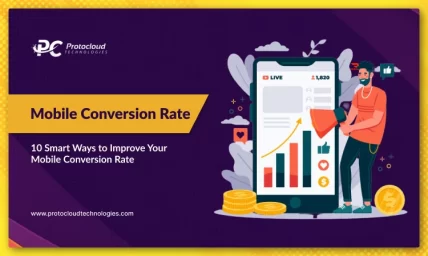

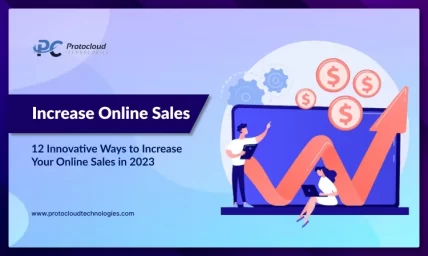
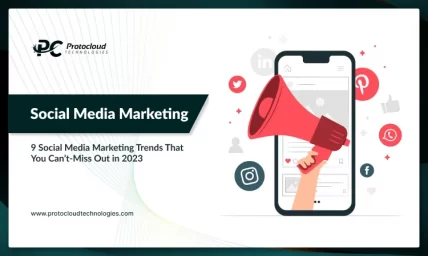
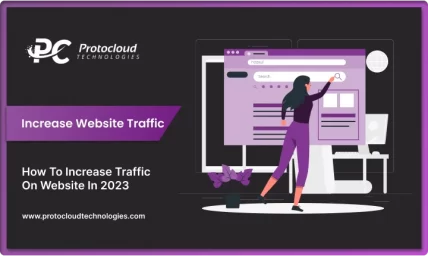
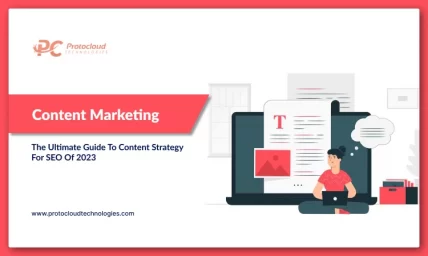
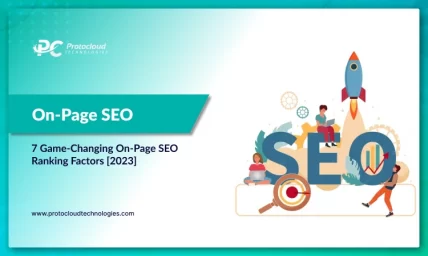
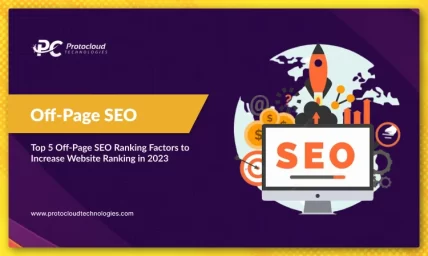
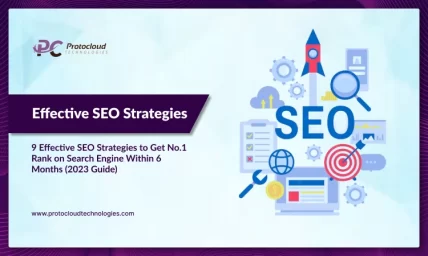
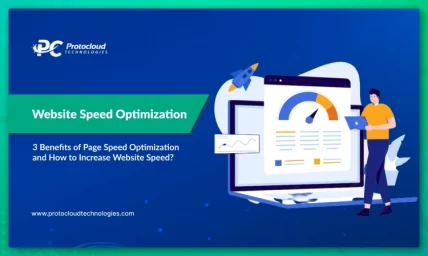
Wow amazing blog layout How long have you been blogging for you made blogging look easy The overall look of your web site is magnificent as well as the content